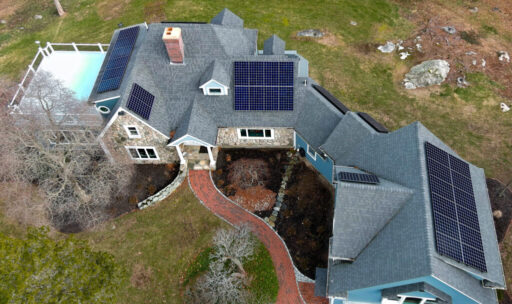Tax Exemption
Certain renewable energy systems and equipment sold in Rhode Island are exempt from the state’s sales and use tax. Eligible products include solar electric systems, DC-to-AC inverters that interconnect with utility power lines, and mounting racks. There is also a provision exempting qualifying renewable energy systems and associated equipment from property taxes.
Small Scale Solar Grants
Commerce Rhode Island provides financial grants for small-scale solar photovoltaic systems and domestic solar water heating systems to help reduce energy costs and increase renewable energy adoption. The program is funded by the Rhode Island Renewable Energy Fund and alternative compliance payments from the state’s renewable portfolios standard (RPS).
Solar Easements
Rhode Island allows property owners to establish solar easements with the same effect as a conveyance of an interest in real property. A solar easement allows a home or business owner to protect the efficiency and shading of their system in relation to others. For example, a solar easement means a huge building cannot be built next to your home if it interferes with a certain amount of shading on your system.
Battery Incentives
Rhode Island is currently offering incentives for home battery storage. This would give battery owners $400/kW to sell some of the energy they have stored to the utilities during peak times of the summer months. Participating in one of these programs could cover the cost of the battery in a few years time. The current program is running until August 1st, 2019 but may be up for an extension.
PACE
Rhode Island offers both commercial and residential Property Assessed Clean Energy, which is a financing program that allows property owners to repay the costs of energy efficiency or renewable energy projects in conjunction with their property tax payments.


